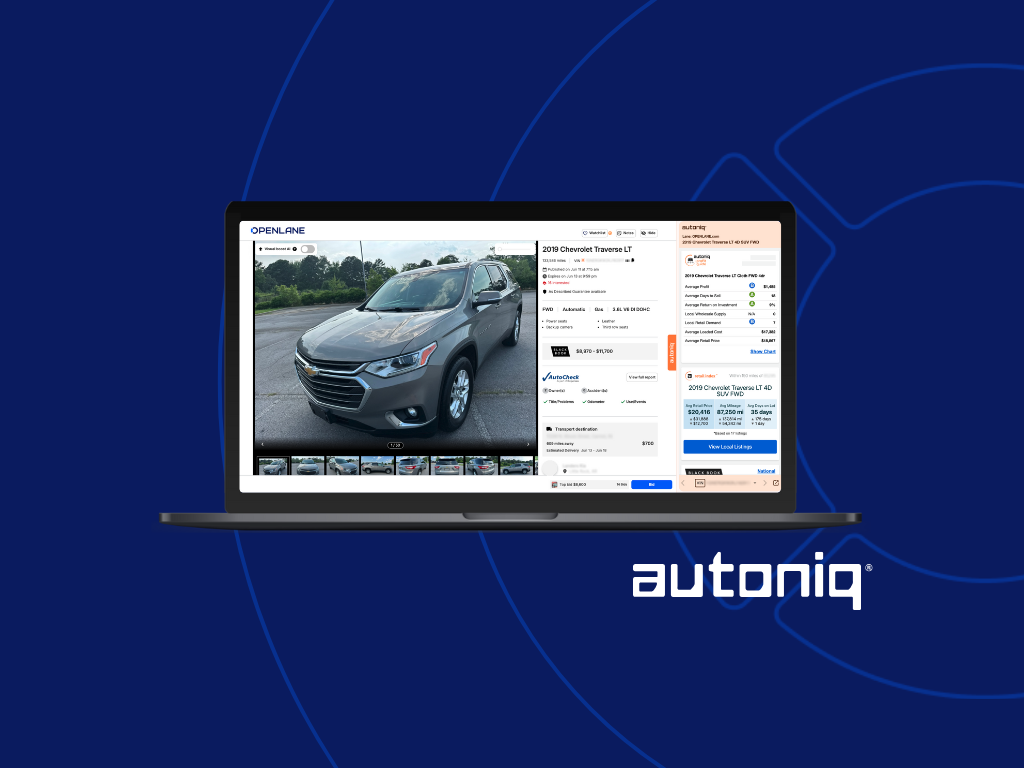Auto Remarketing: How auto auctions navigated a Texas-size winter storm
CARY, N.C. –
Editor’s Note: This is Part I of a three-part series on how the auto auction industy was impacted by and responded to the destructive winter storm that hit the central U.S. in mid-February. First up is a look at how ADESA’s use of technology to facilitate remote sales allowed it to carry on without much interruption.
Srisu Subrahmanyam, who lives in Indianapolis and has called several other cities home, knows a thing or two about winter weather.
After all, Hoosier state residents routinely have to dig out of snow.
But the winter storm and its fallout that hit the Heartland this month — especially the impact to Texas — was something else.
“This kind of weather is crazy,” said Subrahmanyam, who is ADESA’s chief operating officer, in a phone interview late last week.
“We have freak storms more often than we realize, but for Texas to have this much snow and ice and power outages, it’s like the perfect storm out there,” he said. “I’ve lived in a lot of different places and I just have never seen anything like this.”
At the time of the interview, the Indianapolis area, where ADESA’s parent company KAR Global is headquartered, had received about a foot of snow that week, Subrahmanyam said.
“We know how to deal with it. But when this kind of weather hits the South, it’s a totally different ballgame. And historically, for our industry, as you’ve followed it, these kinds of storms create significant challenges for us logistically and equally importantly, safety-wise, it creates a huge challenge for both our teams as well as our customers.”
In years past, such a weather event would have temporarily shut down ADESA’s auction operations, he said. The auctions would have to delay or cancel sales amid such stores.
Even without the complications of power outages, icy roads often meant dealers, sellers, auctioneers and auction personnel couldn’t safely get to the facility.
“And if our staff couldn’t safely get on site, the sale didn’t happen,” Subrahmanyam said. “That’s our history. And thousands of used-car inventory would just go unsold that week and we’ll wait for the following week.”
Not this time, though.
Thanks largely to the digital and remote sales capabilities of ADESA’s Simulcast and Simulcast+ platforms, ADESA was able to still host the overwhelming majority of its auction sales the week of the storm, including its four Texas auctions.
They just did so virtually.
Subrahmanyam credits that to the foresight and technology plans that KAR has made over the years.
“We’ve thought a lot about business continuity for our customers. We’ve thought a lot about where the industry and the environment is going from a digital standpoint and we’ve made some very prudent choices around that,” he said.
“But in general, when we have weather like this, or issues that we have to deal with, we make all our decisions with two protocols in mind: the first one is maintaining a good operation for our customers so that they can conduct business in our marketplaces,” he said. “And secondly, doing it really safely, for our team members as well as our dealer customers.”
And it’s not just weather at play. The COVID-19 pandemic has altered the way auctions have operated in the past year, as they adhere to new safety protocols and local mandates.
Such phenomena underscore how important it was for KAR to have invested in technology that facilitates digital and remote sales.
“Fortunately, we have made good investments in technology. A couple of years back, we launched a revamp of our Simulcast platform. And this past year, just at the onset of COVID, we launched Simulcast+, which is an entirely automated digital experience, including the auctioneer,” Subrahmanyam said.
The Simulcast+ platform, which ADESA first began using in April, is a new digital auction platform designed to simulate a live auction environment through a live streaming format that’s fully digitized and highly automated, according to KAR.
Through this technology, vehicles can be sold digitally from auctions, distribution center, dealerships or multiple locations.
Subrahmanyam recalled one point during the height of shutdowns where ADESA was, “only auction operation still running in Massachusetts and California, because of the local restrictions.
“And that was entirely due to the fact that we had Simulcast+ up and running, and we could run a completely digital, virtual experience for our customers, literally with nobody on site,” Subrahmanyam said. “And we’ve experienced that in (mid-February) as well through this weather event.
“We can run sales with people from all across the country, all across the globe if we wanted to,” he said.
Take ADESA Austin, for example. Subrahmanyam estimated there were eight inches of snow on the ground, covering a quarter-inch of ice early in the week. They decided mid-morning on Feb. 15 to convert the next day’s sale to Simulcast+. No one was going to come into the auction, he said.
“I think in normal times, we would have just called off the sale, like many auctions did,” Subrahmanyam said.
“But our GM talked to the customers; they were keen to run. They wanted their commerce to continue, if we could safely operate,” he said. “So, we made the call, we had a (Simulcast+) sale.”
A general manager in Austin dialed in, but everyone else conducting the sale was spread out the U.S. in places like Atlanta, Houston, Los Angeles and Phoenix.
There ended up being sales to buyers in 16 states and two international locations from that one sale, he said.
“It was a great example of risk mitigation and (business) continuity for our customers. We’ve always been asked about continuity practices. And we have expertise to run these sales across the country now,” Subrahmanyam said. “We are not polarized in our risk, with people at just one location. We can operate across the country, because our teams are pretty efficient at this now.”
He lauds the “distributed personnel strategy,” where a buyer engagement team or a customer connection team or an operations team are in different places.
“And the technology, it has been proven in prime time. And we’ve run with basically zero people on site if we need,” he said.
At the time of the interview, ADESA had hosted six Simulcast+ sales that week, including its Texas auctions, as well as its location in Little Rock, Ark., and Concord, Mass. Those events resulted in sales to buyers in 33 states and international buyers, as well.
The only sale that did not happen was at ADESA Shreveport, a company spokesperson noted. That sale was delayed a week, as requested by customers
But aside from brief delays to allow dealers or auctioneers to arrive, ADESA had not skipped any other of its sales last week.
However, without the technological advancements KAR has made in recent years to allow for remote sales, that likely would not have been the case.



